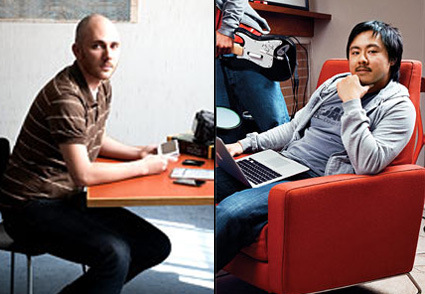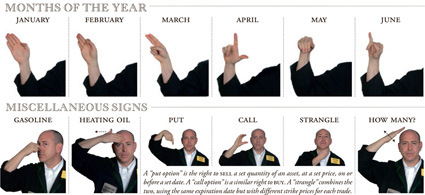
(Pic: Ryan Block leads Engadget (left), Brian Lam leads Gizmodo)
If you’re a gadget/design person (like many industrial designers are, I’m sure), you’d certainly have come across Engadget and Gizmodo, the twin titans in the consumer gadgets arena. And if you’re a frequent visitor, you’d certainly also notice a less-than-friendly relationship between the two blogs, as in any good ol’ fashion rivalry, with each blog racing to bring the latest and juiciest in gadget-o-dom. But just how bad (good?) is it?
Wired has a rather comprehensive and interesting look behind the scenes, outlining how much the bloggers do to get an edge over the other. In a battle for online eyeballs lusting for gears, speed and exclusivity is indeed critical – many times it can really boil them to a matter of minutes for one blog to earn the bragging rights for being the first to cover major product releases. Much like high-school fraternity rivalry, perhaps.
Describing the ‘war strategy’ for Gizmodo during the Consumer Electronics Show (the SuperBowl equivalent in Gadget-dom) coverage, for instance:
No wonder Lam has been devising his CES strategy for the past 12 months. As soon as the 2007 show ended, he made a 2008 reservation at the Hilton, the hotel closest to the convention center, to serve as Gizmodo’s war room and “infirmary” for bloggers needing a midday break. He also reserved a block of rooms at the Imperial Palace because it was close to the Las Vegas monorail. That meant his writers could avoid the hour-long taxi lines that have come to define CES. And, of course, Lam expects his staff to sacrifice for their art. “In Thai boxing, the trainers don’t allow their fighters to have sex for two weeks before a match,” whispers Lam, a onetime kickboxer, “and the trainers can tell if they have, because it makes them lazy.” He shakes his head and pokes an accusing finger at one of his bloggers.
Head on for the full article.







